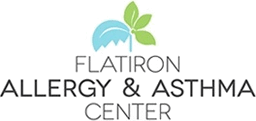Allergic Rhinitis
Allergic rhinitis is one of the most common chronic conditions in the US.
Individuals with allergic rhinitis develop allergy antibodies (IgE) targeted against allergens including pollen, animal proteins, dust mites, mold, and insect droppings. When these IgE antibodies bind allergens, nasal and sinus inflammation can occur resulting in recurrent symptoms of:
- Itching of Nose, Mouth, Throat
- Sneezing
- Runny Nose
- Nasal Congestion
- Headache
- Sleep Disturbance
Allergic rhinitis is known to adversely affect quality of life by:
- Impairing Daily Activities
- Decreasing Work Productivity
- Impairing Cognitive Function
- Disturbing Sleep
Allergists are considered the experts in allergic rhinitis and diagnose this condition by history and most commonly allergy skin tests (specific IgE blood tests can also be completed).
The goals of allergy treatment are to relieve and prevent allergy symptoms, reduce the impact of allergens on other chronic conditions (if present) including asthma and chronic sinusitis (please see below), and ultimately, improve quality of life.
The three primary options in the treatment of allergies are:
- Avoidance Measures
- Medications
- Immunotherapy (Allergy Shots)
Immunotherapy can be a highly effective tool in the treatment of allergies.
By visiting an allergist, you too can take control of your allergies and improve your quality of life.
Vasomotor Rhinitis
Vasomotor rhinitis is a non-allergic type of rhinitis that can be triggered by odors, irritants, exercise, temperature changes, cold air, and alcohol. This condition can cause runny nose or nasal congestion. Potential mechanisms of vasomotor rhinitis include increased mucous gland activity, neuron sensitivity, and vagus nerve activity. Treatment involves the use of nasal sprays.
Gustatory Rhinitis
Gustatory rhinitis refers to rhinitis that can occur on food consumption (most commonly hot and/or spicy foods). It may be caused by increased vagus nerve activity. Treatment involves the use of nasal sprays.
Non-Allergic Rhinitis with Eosinophilia Syndrome
Non-allergic rhinitis with eosinophilia syndrome is a chronic rhinitis characterized by the presence of nasal eosinophils. In this condition, allergy skin and specific IgE tests are negative. Treatment usually involves the use of nasal steroid sprays.
Infectious Rhinitis
Infectious rhinitis is characterized by bad-colored nasal discharge. This condition is usually caused by viral infection though secondary bacterial infection can also occur. Treatment is supportive in the case of viral infection. Should symptoms persist greater than 7-10 days, antibiotics may be considered as a treatment option.
Drug-Induced Rhinitis
Drugs associated with rhinitis include angiotensin converting enzyme inhibitors (type of blood pressure medication), aspirin and other NSAIDS, alpha-receptor antagonists (type of blood pressure medication), topical decongestants if overused, as well as other medications.
Hormonal Rhinitis
Pregnancy and menstrual cycles can be associated with rhinitis.
Atrophic Rhinitis
Atrophic rhinitis is characterized by atrophy of the nasal mucosa, dry nose, nasal crusting, and foul odor emanating from the nose. Secondary causes of atrophic rhinitis include chronic sinusitis and sinus surgery. Treatment involves the use of nasal saline irrigations and antibiotics when indicated.
Other Inflammatory Cause
Several other inflammatory immune mediated conditions can be associated with rhinitis including Wegener’s Granulomatosis, Sarcoid, and Churg Strauss.
